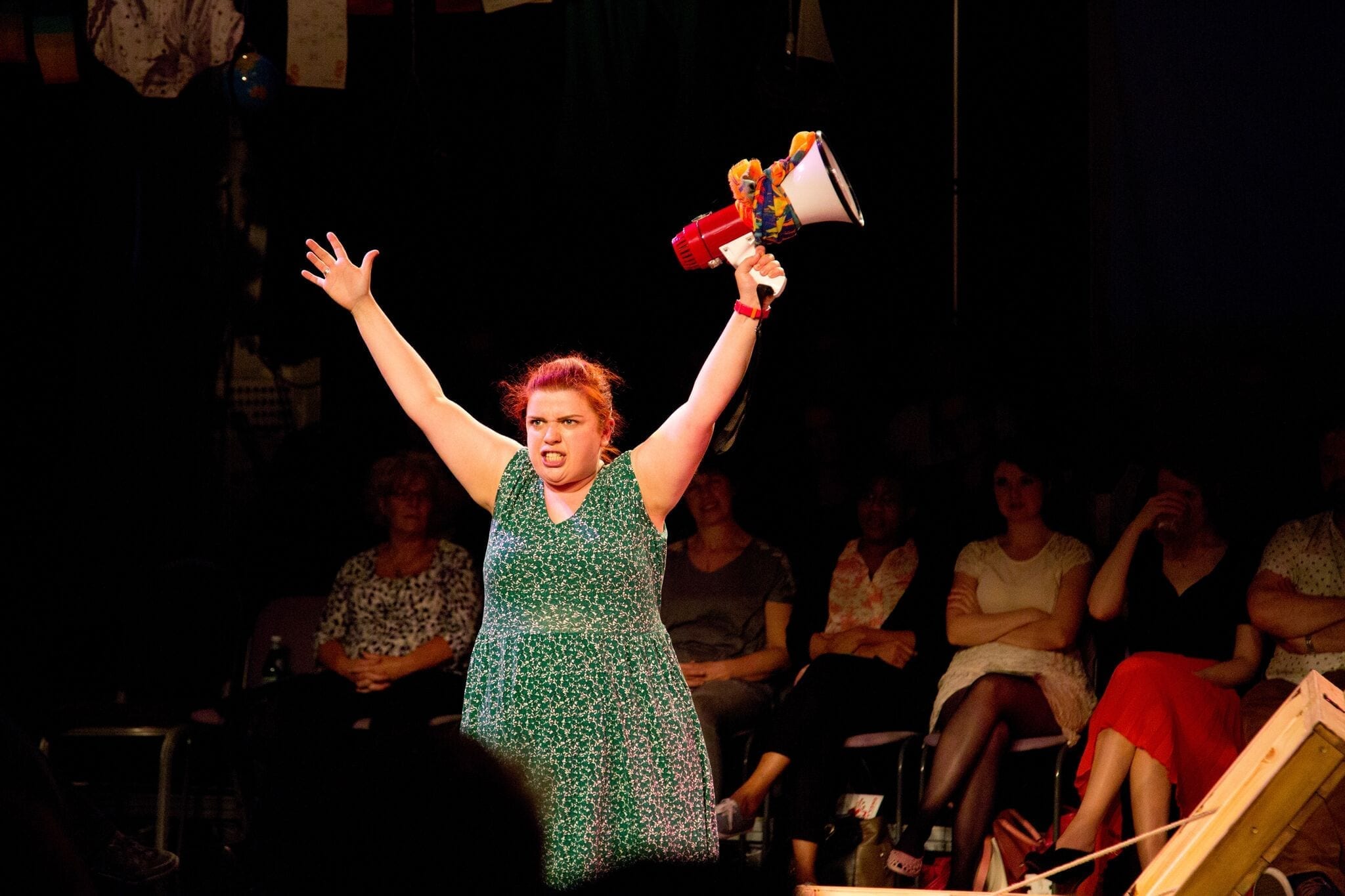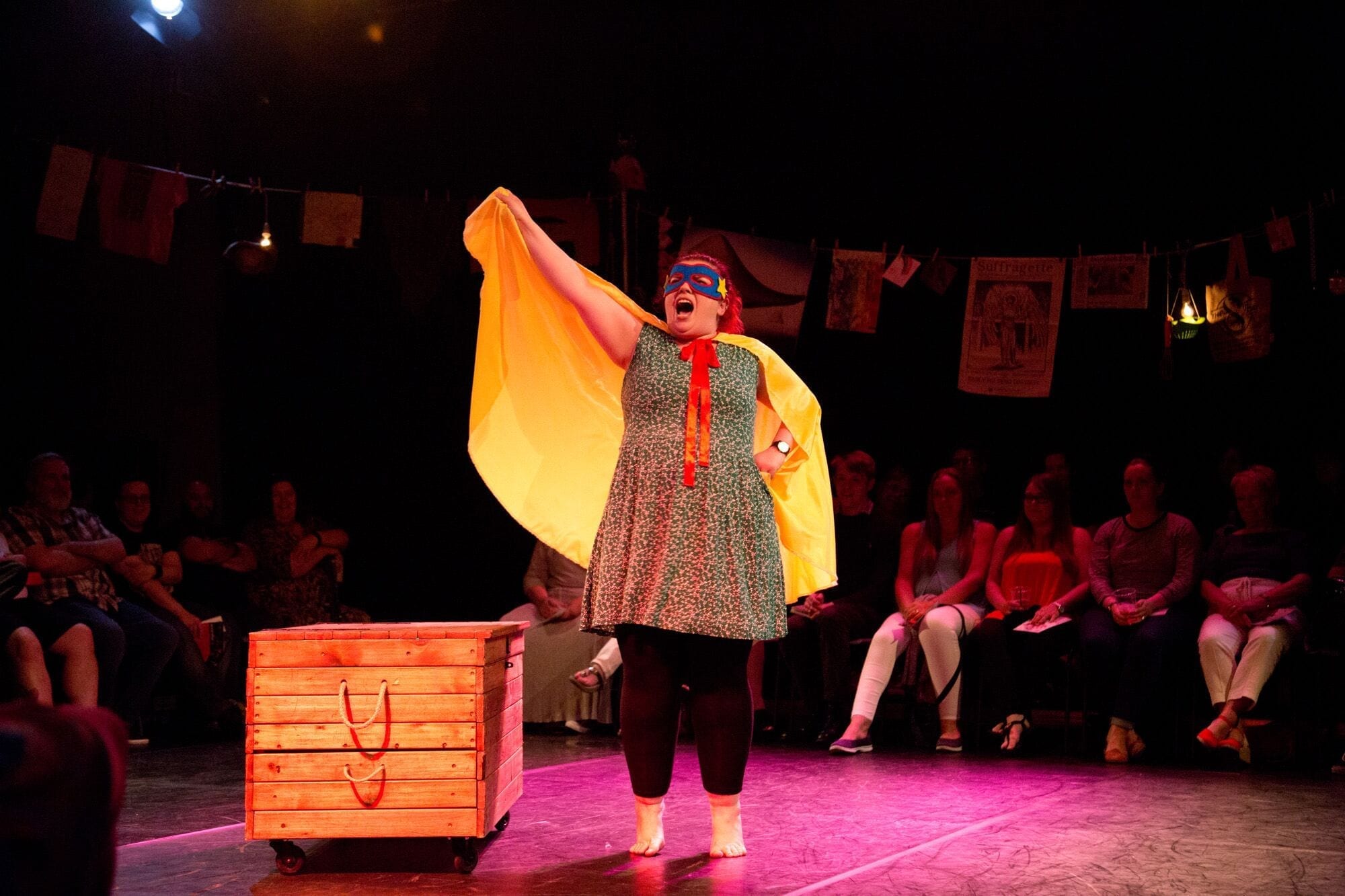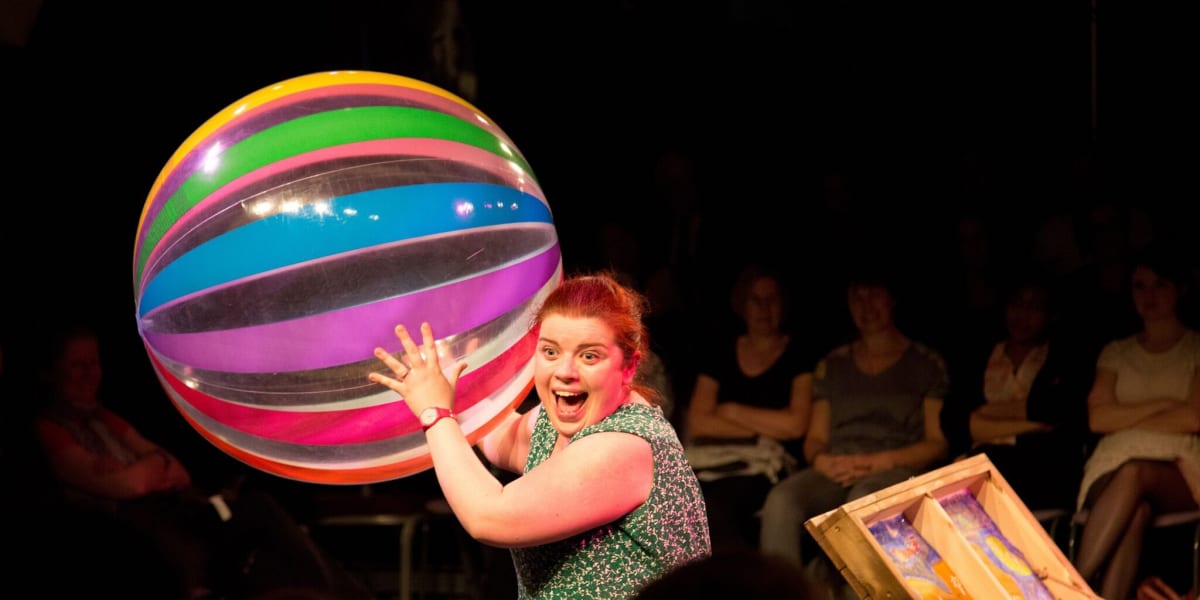Declaration is Sarah Emmott’s energetic and vibrant monologue about life each side of an ADHD diagnosis.
The chairs are set up in the round and she greets each audience member with vast enthusiasm as we come in, remarking on the best dressed amongst us. The walls are hung round with brightly coloured pictures, clothes, flags and other knick-knacks that seem freshly collected from a trip through Sarah’s past, dangling from a clothesline. There’s a wooden chest on wheels in the centre of the stage that she pushes around and opens up, pulling various items out as she takes us through this brief history of her brain’s activity – the first picture she drew of her house, a doll, a giant clipboard and pencil.

She begins with a reflection on her life as an active, energetic and busy child in the 80s, conflicted with an acute sense of being out of the ordinary, in a deprived area that valued norms. She recreates the moment her mother took her to the doctor to get to the root of her generous helping of energy. He diagnoses it as an overly potent combination of sugar and E-numbers.
Emmott, along with Rachel Moorhouse who helped to create the production, successfully confronts and shatters the stereotypes often associated with ADHD. Along with the doctor’s overly simplistic and dismissive diagnosis, Sarah addresses the common attitude that children with ADHD are ‘just little shits’ as well as the struggles that come with the extreme lows of living with the condition. Contrasting with the buzzing self she presents at the beginning of the production, Emmott effectively recreates much darker moments with sombre lighting and soulfully impassioned acting. She voices anxiety about the need to present the cheerful and energetic side of herself at all times, incorporating an engaging discussion about the effects of ADHD on her relationships. She uses video clips of her wife and mum discussing the mental and emotional challenges that present themselves with the condition – incorporating an often overlooked and deeply personal side to the discussion around mental health and how it influences bonds with others.

Declaration is funny, warm and an asset to the drive towards better mental health awareness, but it occasionally loses sight of a narrative arc and meanders. It picks up pace after Emmott retells her experiences of being diagnosed with ADHD and touches on an interesting exploration of the confusing repercussions for her sense of identity once she has been labelled with a mental health condition. The extended setting up of her life before diagnosis is essential, but the effects of a label, and her experiences of finding others in an ADHD self-help group are not developed quite fully enough.
Mind estimates that ‘1 in 4 people in the UK will experience a mental health problem each year’ and Emmott has done a wonderful thing in creating a deeply personal and enjoyable performance, charged with positivity. It raises awareness around a lamentably misunderstood condition and will no doubt leave most audience members feeling a little less alone in the day-to-day interactions with their own complicated minds.

